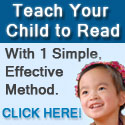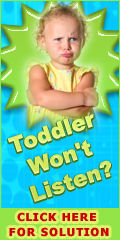Child car seats
Never underestimate the importance of child car seats. Having a car seat that is properly installed and appropriate for the age and weight of the child will greatly reduce injury should an accident occurs.
Below are a few tips in buying/using children car seats :
Ease of use
Choose a seat that is easy to use and that fits in your vehicle. Be sure it can be
buckled tightly.
Length of use
Look for a seat that you can use facing rear as long as possible. Be aware of weight limits. Keep in mind that if you buy an infant-only seat, you will need an infant-toddler
(convertible) seat later. As such, an infant-toddler (convertible) seat may be more economical.
Methods of use
For children to one year and at least 20 lbs., the child car seats must be rear-facing with the harness straps at or below shoulder level. The harness straps for toddlers should be at
or above shoulders. Both lap and shoulder belt must be used for the belt positioning booster seats. Make sure the lap belt fits low and tight across the lap/upper thigh area and the shoulder belt fits snug crossing the chest and shoulder to avoid abdominal injuries.
Place of use
Never place a rear-facing child safety seat in the front seat where a front mounted passenger
air bag is present.
The following are several types of child car seats available in the market :
Infant seats
Used for babies and are designed to support the infants back, neck and head. These infant car seats are installed facing the rear window, in the center of the back seat. Some models
have a base that stays in the car for added convenience.
Infant-Toddler (Convertible) Seats
Used for babies which can then be converted to a car seat for toddler up to 40 pounds. The name convertible means the ability to change the car seat from rear to forward facing. Generally, this type of child car seats can be used until at least the child's first birthday
or longer up to 40 pounds.
Belt positioning booster Seats
These car seats are suitable for the child who has outgrown the convertible seat, but
is too small to use your car's safety belt system alone. A booster seat raises your child up
so that the seat belt fits right and can better protect your child. The shoulder belt should
cross the child's chest and rest snugly on the shoulder, and the lap belt should rest low across the pelvis or hip area, never across the stomach area. The booster car seat is appropriate for children who are 4 to 8 years old and weigh between 40 and 80 pounds.
Which ever child car seats you choose , make sure you read all the installation instructions carefully and always buckle up for safety!
One more important point to remember :
All children age 12 and under should ride in the back seat!
Do You Struggle To
Get Your Child
To BEHAVE?
CLICK HERE for a
FREE presentation on
Tips and Tactics that Work!





